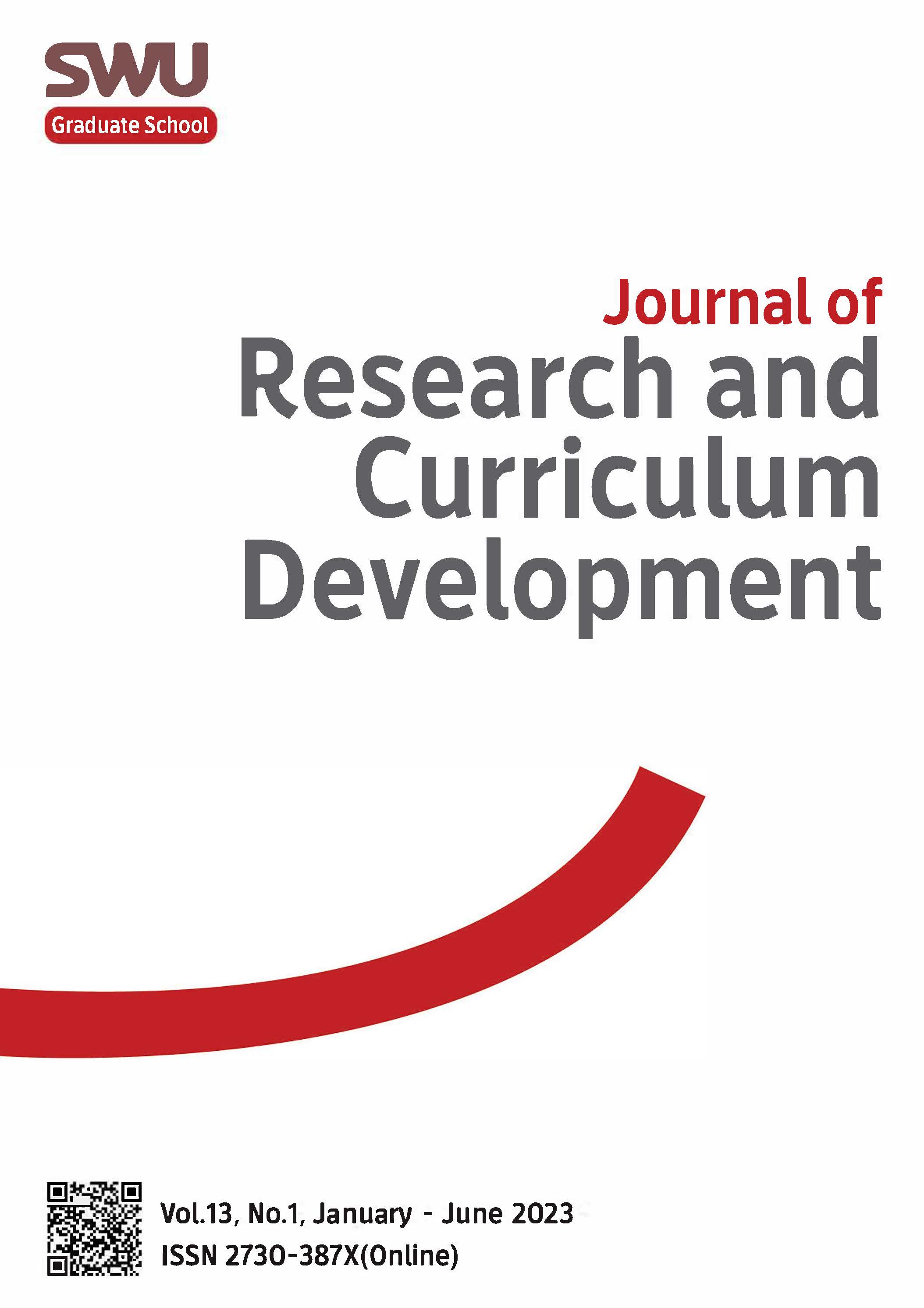An Integrated Learning Process Model for Enhancing Innovation Creative Systematic Thinking and Humanized Health Care of Lecturers and Support Personnel at Sirindhorn College of Public Health, Ubon Ratchathani Province
Keywords:
Keywords: The Integrated Learning Process Model, Systematic Innovative Thinking, Humanized Health Care.Abstract
This participation action research aims to develop an integrated learning process model for enhancing creative and systematic innovative thinking and the humanized care of instructors and support personnel at Sirindhorn College of Public Health in Ubon Ratchathani province by using a learning process based on research articles, After Action Review (AAR), and reflection on creative ideas using the three-basket technique as the method. The sample in this study was 640. A questionnaire was the tool used in this study and verified with a content validity from three reviewers as >0.5. The reliability of the questionnaires was calculated as a Cronbach's alpha coefficient as 0.79. The findings indicated that the results of model development were composed of the following: (1) the principles of the model; (2) the objectives of model; (3) the procedure of model, which consisted of five steps, as follows: (A) learning to enhance a growth mindset; (B) passion for the development of creative innovation; (C) innovation development based on research studies; (D) reflections and lesson learned, and (E) knowledge management for creating innovation; (4) model evaluation; and (5) supporting factors. The results of the efficacy evaluation on the creative model for producing innovations from lecturers and support staff were at a high level overall (M = 4.49, S.D. =0.44) while humanized health care average as a whole at highest level (M = 4.51, S.D. =0.54). Qualitative data were analyzed using three-baskets technique was presented so that the model helped lecturers and support personnel practice more listening without any judgment. The rules of conversation were that “someone speaks, everyone should listen to the speakers deeply. If the listeners would like to be a speaker, he/she should wait times without any interrupts, and could reflect his/her ideas in a polite way with their honest. This method would help lecturers and support staff develop positive thinking in terms of enhancing student competency and becoming perfect humans, as well as supporting the identity of service-mindedness with humanized care.
References
Aunnop Sontichai, Nithit Thanee, Thanomsak Boonsu, & Rungaroon Kramutkant. (2018). The Behavior Identity Model of Primary Health Care Services of Bachelor Degree Students in Public Health (Community Public Health) at Sirindhorn College of Public Health, Ubonratchathani. Nursing Public Health and Education Journal; 19(1); 145-160. (in Thai)
Education Council Secretariat, Ministry of Education, Fact sheets: National education plan.2017-2036. [Internet]. 2022 [Cited in 4 November, 2022]. Available from: http:// www.backoffice.onec.go.th/uploaded/Outstand/2017-EdPlan60-79.pdf
Health Systems Research Institute, Fact sheets: Transferring Subdistrict Health Promoting Hospitals to Provincial Administrative Organizations. [Internet]. 2022 [Cited in 5 October, 2022]. Available from: http://www.hsri.or.th/media/news/detail/13981
Health System Institute. Fact sheets: Insights into the Health System. [Internet]. 2022 [Cited in 5 October, 2022]. Available from: http://www. hfocus.org/content/2022/09/26081.
Makarapan Jutarosaga. (2023). Critical Leadership of Conductors (CLCs). ISBN 978-616-598-084-5. Vol-1. Bangkok, Danek Intercoration Company.
Makarapan Jutarosaga et.al. (2017). Reflection Pathway of Humanized Health Care Learning Process Reform by a Simulated Family Model to a Community of Practice. Nursing Journal of the Ministry of Public Health 27(2); 31-46.
Phraboromrajchanok Institute.(2017) Graduate Identity Research Report of Phra Boromrajchanok Institute. Nonthaburi, Office of the Permanent Secretary, Ministry of Public Health.
Prasert Attohi et.al. (2018). A Participatory Management Education Model through Simulated Family System to Develop Humanized Health Cared Identity. Nursing Journal of the Ministry of Public Health. 139-151.
Planning Office, Ministry of Education. Fact sheets: National education plan 2017-2027. [Internet]. 2022 [Cited in 4 November, 2022]. Available from: http://www. plan.bru.ac.th.
Saowaluk Seedaket et.al. (2020). Model of Integrated Educational Management for Enhancing Creative Innovation Skills of Teachers and Support Staff,Sirindhorn College of Public Health Khon Kaen Province. Journal of Research and Curriculum Development; 10(1); 181-209.
Sompong Pamunila, Fact sheets: Action research. [Internet]. 2022 [Cited in 5 June, 2022]. Available from: http:// www.nurse.ubu.ac.th/sub/knowledge/Actionresearch.pdf
Thai Journal Online (ThaiJO). Fact sheets: Policies related to lifelong learning in Thailand. [Internet]. 2022 [Cited in 4 November, 2022]. Available from: http:// so06.tci-thaijo.org/index.php/jclmd_psru/article/view/254645
Vichan Panij. (2013). Learning creation in Century 21. Bangkok, Siam Kam Ma Jol foundation.
Downloads
Published
How to Cite
Issue
Section
License

This work is licensed under a Creative Commons Attribution-NonCommercial-NoDerivatives 4.0 International License.





